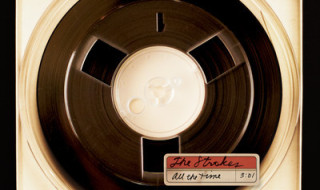
Source: www.21st-apothecary.com
Being in a band is very often a losing battle. Some bands never taste success, failing to perform a single gig before their career’s inevitable collapse under the strain of a heterogeny of big personalities with small tempers. And often, these types of bands can be seen from a mile away, each character precious about his or her contribution to what little music is produced from them, and almost always, it speaks through the quality of their song-writing.
But there is one category of band that boasts a wealth of great gigs, music and personality that still, somehow, doesn’t make it into the music industry before a split-up. Let’s call this the ‘Icarus’ group; the artists that felt like they were doing so well that they either forgot to focus or grew impatient. I was in one of those bands.
In late March this year, it was announced that my days as part of a band had ended. Ironically, I was one of the last to find this out. Upon a number of social gatherings, I was approached by friends who had long served as part of our loyal fan-base, expressing their sincerest consolations at the loss of my band. I stood there somewhat bewildered. One expects to have some say in the disassembly of something that they have invested a great deal of time and effort into. I later discovered that, while I had been away on my University ventures, there had been a significant increase in friction between the other members of my band.
So, how is it that we can take such experiences and use them to our advantage? How do we get over them?
You are Already Used to Playing with Musicians
No matter how long or short your experience has been with a band, it is a huge learning experience. One of the more obvious reasons is that you develop the ability to play with other musicians. This skill is acquired through a sort of musical osmosis, and it is difficult to spot happening due to its very gradual progression, but it does happen. If you are not a drummer, playing alongside a live percussionist is, at first, very intimidating. My first gig was terrifying because I was very consciously aware that we had put one person in control of the rhythm, and my job was to follow. And for the most part, it comes naturally. However, the songs that we had written came with plethora of sudden stops and starts, and I often tripped at these moments, in front of my first live audience, suffering through the staccato implements in the melody because of a sub-standard technical ability on my part. With a CD or an mp3, the rhythm is always identical, and you can play by predicting them, hearing it perfectly recited in your head. But a drummer will play with a very slight variation each time, either due to their natural creativity (of which our drummer had buckets of) or their musical ear being not quite as experienced as yours.
After a band break-up, you have this experience under your belt. You can jump into a band already being very familiar with performing with other musicians as opposed to a backing track. This means that you have a head-start for your new band musically.
You’ve Written Songs Before
Often in a band, you can present ideas that you feel are perfect, but are rejected on the grounds that they ‘just don’t fit with our style’. For me, it was my writing style that would probably work in a more indie-based band; my focus tends to be on chord progressions that I feel are emotionally charged, from which the lyrics can flow. However, emotional chords don’t necessarily fit in with a Pop-Rock trio. Although we did develop our style as a band, falling somewhere between Biffy Clyro and Blink-182, my style was developed in secret. As soon as we split, I felt liberated to work on these pieces without feeling guilty that I wasn’t writing something that conformed to the band’s writing guidelines.
Also, rejection is good. If you deal with it and write any way, you will become less and less precious about the songs that you write, opening up more creative freedom with your new band which means, if you have creative musicians, you will develop some truly great songs.
You Understand the Gigging Process
A band’s first gig is an extraordinarily scary experience, and it isn’t helped by the awkwardness of the contacting process. The advantage of a previous band break-up is that you have got gigs before, and even if a landlord doesn’t seem convinced by your pledge to rock their bar to the ground, you have ammunition – previous gigging experience. By now, you should expect that you won’t get paid for most gigs, because that is the sad reality of the unsigned world. If landlords know that you have played before purely voluntarily, they will be much keener to get you in their drink-tanks.
You Know What Kind of Musicians You Want
If there is one thing you can take from a band break-up, it is that you have a much better idea about what characters you want in your next band. Beginners can make the mistake of opting for the ‘best’ musicians to perform with them, without stopping to question how their personalities will mix, and whether or not they will fuse. My advice is to go for humble band-mates; even if they lack in technical proficiency, they will make up for it in preparation, loyalty and optimism, and won’t ruin a show by trying to steal it. Remember, a band works best when they work together. As long as musicians are in tune with each other, and can bounce of what each member plays, their technical ability should take a backseat. There are classic examples everywhere that you look – Kings of Leon, Queens of the Stone Age and Red Hot Chili Peppers are all brilliant bands because they put the overall sound of the songs before the glory. In other words, if you have a guitarist who is too busy playing a solo to keep the rhythm going, trade him for someone else. A band can make it. A collection of individuals can’t.
Hopefully these reminders should brighten up the future and help those of you unplugging your amps for what seems like the last time to wipe away those tears. Even though band break-ups can be emotionally traumatic, it is vital to remember that you have a kick-start into a genre of your choice. Who knows? The echoes of the stadium may be calling out for you.
 Jonathan Taylor spends his days working as a writer at Appliances Online, and takes the opportunity to indulge in music all day long. He is currently studying for his Grade Eight electric guitar exam, and his voyage on the melodic seas is currently taking him on an adventure through the isles of blues and jazz.
Jonathan Taylor spends his days working as a writer at Appliances Online, and takes the opportunity to indulge in music all day long. He is currently studying for his Grade Eight electric guitar exam, and his voyage on the melodic seas is currently taking him on an adventure through the isles of blues and jazz.



